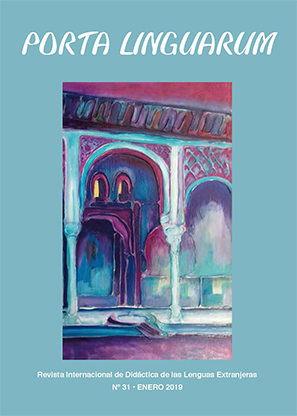Teaching and learning terminology in secondary education: Towards specialisation through language
DOI:
https://doi.org/10.30827/portalin.vi31.13829Abstract
Teaching a second language involves the elicitation and acquisition of the general expressions that may be useful for students in everyday situations in which the target language is spoken. However, in the present context of strong scientific de-velopment, many learners are also faced with the need to become acquainted with terminology (i.e. technical and/or specialised vocabulary) representing complex and abstract concepts. This holds especially true for immersion programmes, in which stu-dents must gain an understanding of curricular subjects such as mathematics or history entirely in a second language. A methodology is proposed in this paper for retriev-ing domain lexicons from texts which can contribute to the acquisition of specialised knowledge at later stages of pre-tertiary education. The paper first discusses the im-plementation of a five-phase learning strategy for students with no prior experience in terminology extraction and management, and then presents DEXTER, a tool suitable both for autonomous and in-class work. As it will be shown, the tool provides relevant results even with a relatively small amount of data, thus allowing a fast learning curve.Downloads
Download data is not yet available.
Downloads
Published
2019-01-31
How to Cite
Ureña Gómez-Moreno, P. (2019). Teaching and learning terminology in secondary education: Towards specialisation through language. Porta Linguarum An International Journal of Foreign Language Teaching and Learning, (31), 117–130. https://doi.org/10.30827/portalin.vi31.13829
Issue
Section
Article



















